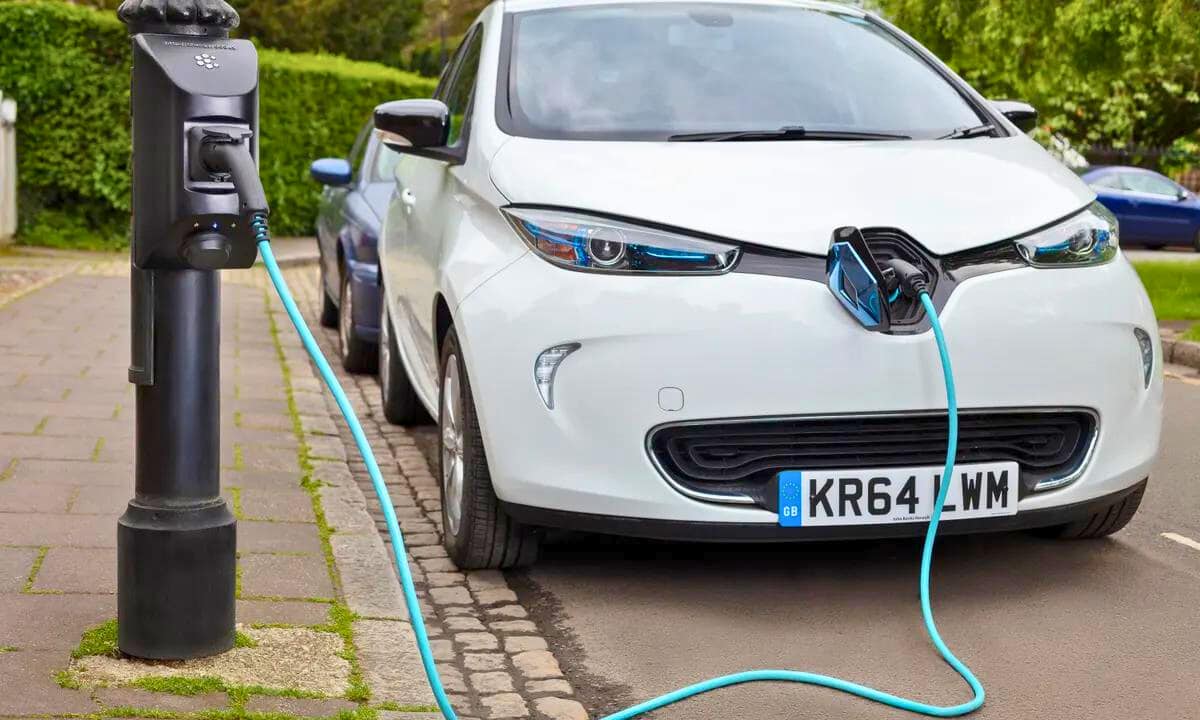As the UK races toward its ambitious net-zero carbon emissions target for 2050, the pressure to accelerate electric vehicle (EV) adoption has never been higher. Industry leaders, particularly in the automotive sector, are calling for urgent action to ensure that carmakers meet their increasingly stringent zero-emissions vehicle (ZEV) targets. According to Lisa Brankin, Chairman and Managing Director of Ford UK, the solution may lie in a government-backed tax incentive program aimed at boosting consumer demand for electric cars. Without such measures, Brankin warns, the UK risks falling short of its EV goals, undermining efforts to transition to cleaner, more sustainable transportation. This plea comes amid ongoing challenges within the auto industry, as manufacturers struggle to meet sales targets while grappling with rising production costs and shifting consumer behavior.
A Growing Urgency in the Electric Vehicle Market
The call for tax incentives stems from the pressing need to align consumer demand with the government’s ZEV mandates. As Brankin pointed out on BBC Radio 4’s Today Programme, “customer demand isn’t at the same level as the Government mandate.” Despite the government’s ambitious goals to have 22% of all new car sales in 2024 come from electric vehicles, the demand from consumers has remained sluggish. Ford’s UK division, which has heavily invested in EV production, is feeling the strain. According to Brankin, “We’re not seeing customers coming and wanting to buy electric vehicles, either cars or vans.” She emphasizes that while Ford supports the government’s long-term trajectory for EV adoption, the industry cannot meet the targets without stronger incentives to drive consumer interest.
Incentivizing the switch to electric vehicles could also address wider concerns in the automotive industry. Ford, alongside other manufacturers, faces the risk of financial penalties if they fail to meet ZEV sales targets. For Ford, this could mean missing the 22% sales target for 2024, which is set to escalate to 80% by 2030. Brankin has warned that without urgent government intervention, the industry will struggle to meet these goals, ultimately jeopardizing the broader push for decarbonization.
Ford’s Plea for Government Action
Brankin is clear about what’s needed from the UK government: “The one thing that we really need from the Government is government-backed incentives to urgently boost the uptake of electric vehicles.” She highlights the importance of fast-tracking government consultations and acting quickly on any proposed changes. Ford has already made significant strides in EV production, investing £1.6 billion into electric vehicle facilities in Cologne. However, despite these investments, the company is struggling to meet market demand, particularly in light of the growing financial strain imposed by new ZEV regulations.
The absence of sufficient demand could even force the government to reconsider its ZEV trajectory, with Brankin suggesting that the UK might need to delay or scale back its goals. “Without demand, the mandate just doesn’t work,” she warned, adding that company car drivers have already begun switching to electric vehicles well ahead of the target due to previous government-backed incentives.
The Economic Toll on the Industry
The pressures on the UK automotive sector are not just regulatory; they are economic as well. Ford’s struggles are emblematic of the wider challenges faced by the industry. Last week, the company announced plans to cut around 14% of its European workforce, equating to roughly 4,000 jobs. This decision highlights the financial toll that transitioning to electric vehicle production is taking on car manufacturers. Similarly, Vauxhall, another major carmaker, revealed plans to close its Luton factory after nearly 120 years of operation, putting 1,100 jobs at risk.
These moves underscore the challenges of navigating the electric vehicle transition, especially as the demand for electric vehicles remains below expectations. While the UK government has committed an additional £2 billion to support the transition of domestic manufacturing to EV production, Brankin and other industry leaders argue that more immediate action is needed to ensure that the targets set for 2024, 2025, and beyond are achievable.
The Role of Tax Incentives in Driving EV Adoption
Ford’s call for tax breaks is rooted in the belief that incentives are a key driver for encouraging widespread consumer adoption of electric vehicles. According to Brankin, the company car sector has already demonstrated how effective government incentives can be. “The really important thing is that the consultation is fast, and that the Government acts quickly as a result of it,” she said. If implemented, tax breaks for consumers could help bridge the gap between supply and demand, ensuring that the UK hits its targets and stays on track for a carbon-neutral future.
As the pressure mounts on the automotive sector to meet emissions targets, industry leaders continue to urge the government to take swift action. The key question remains: will the UK government introduce the necessary tax incentives to boost electric vehicle adoption and ensure the success of its ambitious environmental goals?









